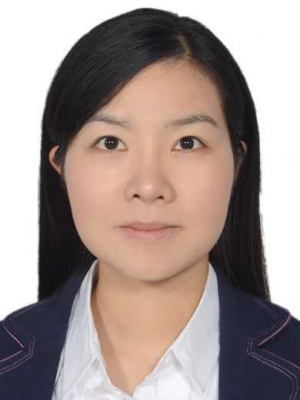
YAN Wangwang
Associate Professor / Master's supervisor
Direction:Sustainability and restoration
Email: yanww5@mail.sysu.edu.cn
Address: Shenzhen campus, Sun Yat-Sen University
Biography
2021.03– Present, Associate Professor, SunYat-Sen University, China
2019.01 – 2021.09, Research Fellow, Nanyang Environmental and Water Resources Institute, Singapore
2015.07 – 2019.01 Ph.D. in Environmental Engineering, Nanyang Technological University, Singapore
Research Field
- Development of Advanced Biotechnologies for Recalcitrant Compounds Removal
- Organic solid waste disposal and resource recovery
- Anaerobic digestion waste-to-energy technologies and systems
Research Projects
2025-2028 National Natural Science Foundation of China (NSFC) Young Scientists Fund, PI
- 2022-2025 Shenzhen Science and Technology Program, PI
- 2024-2027 Basic and Applied Basic Research Foundation, PI
- 2019-2012. Research project Research project funded by Singapore PUB, Study on the dewaterability of the sludge and the optimization of the polymer dosage in Ulu Pandan, Kranji, Changi and Jurong water reclamation plants, Participant.
- 2015-2017. Research project Research project funded by Singapore MOE, Conductive biosystem-enhanced degradation of recalcitrant compounds in industrial wastewater, Participant.
Publications
Xin X., Li L., Lu B., Yan W.*, A novel hydrolase biomanufacturing-driven strategy for boosting production of volatile fatty acids and vivianite in iron-rich waste activated sludge fermentation[J]. Resources, Environment and Sustainability, 2025: 100264.
Chen, S., Xin X., Wang Z., Wang H., Yan W.*Enhancing tetramethylammonium hydroxide degradation in anaerobic digestion: Neglected role of iron-based conductive materials in regulating degradation pathway. Journal of Hazardous Materials, 2025, 492, 138115.
Xin, X., Xie, J., ChengJ., Li W., Liu Q., Yan W.*(2025). Enhancing concurrent production of volatile fatty acids and phosphorus minerals from waste activated sludge via magnesium ferrate pre-oxidation. Bioresource technology, 2025, 421, 132156.
Cui B., Rong H., Tian T., Guo D., Duan L., Nkinahamira, F., Naidu R. Yan W.*Chemical methods to remove microplastics from wastewater: A review. Environmental research, 2024, 249, 118416. (Hot paper)
Yan W., Song M., Zhou Y. Redistribution of perfluorooctanoic acid in sludge after thermal hydrolysis: location of protein plays a major role[J]. Water Research, 2023: 120135.
Yan W, Xu H., Lu D., et al. Effects of sludge thermal hydrolysis pretreatment on anaerobic digestion and downstream processes: mechanism, challenges and solutions[J]. Bioresource Technology, 2022, 344: 126248.
Yan W.,Mukherjee M.,Zhou Y. Direct interspecies electron transfer (DIET) can be suppressed under ammonia-stressed condition ‒ Reevaluate the role of conductive materials [J]. Water research, 2020: 116094.
Yan W., Qian T., Zhou Y. Micro–level evaluation of organic compounds transformation in anaerobic digestion under feast and famine conditions assisted by iron–based materials–Revealing the true mechanism of AD enhancement [J]. Environment International, 2020, 135: 105362.
Yan W.,Zhang L., Wang L., Zhou Y. Understanding the role of extracellular polymeric substances in perfluorooctanoic acid adsorption in Aerobic sludge, Anaerobic sludge, and enhanced biological phosphorous removal sludge [J]. Journal of Hazardous Materials, 2020: 123381.
Yan, W., Vadi V., Zhou Y. In-situ alkaline enhanced two-stage anaerobic digestion system for waste cooking oil and sewage sludge co-digestion. Waste Management, 120, 221-229.
Yan W., Lu D., Liu J., Zhou Y. The interactive effect of ammonia and CNT on anaerobicdigestion [J]. Chemical Engineering Journal, 2019, 372: 332-340.
Yan W., Zhang L., Wijaya S. M., Zhou Y. Unveiling the role of activated carbon on hydrolysis process in anaerobic digestion[J]. Bioresource Technology, 2019: 122366.
Yan, W., Zhou Y. The presence of ferrihydrite enhances greenhouse gas-methane emission in the environment. Science of The Total Environment, 2019, 688, 462-469.
Yan W., Sun F., Zhou Y. Enhanced anaerobic phenol degradation byconductive materials via EPS and microbial community alteration[J]. ChemicalEngineering Journal, 2018, 352: 1-9
Yan W., Shen N., Xiao Y., Zhou Y. The role of conductive materials in the start-upperiod of thermophilic anaerobic system [J]. Bioresource technology, 2017, 239: 336-344.


